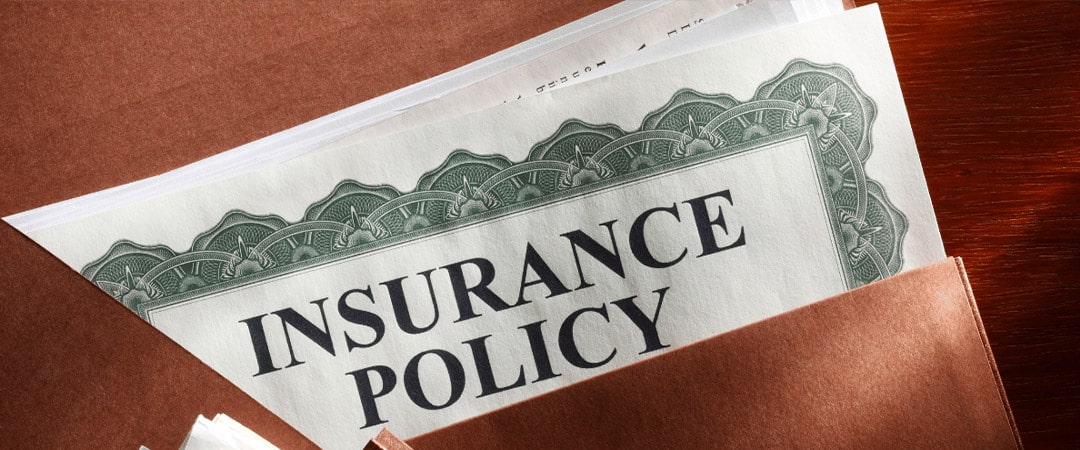“Life is short, and it is up to you to make it sweet.” – Sarah Louise Delany
Why does National Insurance Awareness Day matter to you? Occurring annually on June 28, National Insurance Awareness Day urges you to scrutinize your insurance policies, ensuring you’re not just adequately insured but also not overinsured, which could be costing you unnecessary money. We know that you are someone who likes to take control of your financial future and often use tools like the ones we give at our retirement score webinar to determine your retirement score at IFW. So, brace yourself because you are about to learn why and how to make the most of this occasion to secure your financial health!
Key Takeaways
- National Insurance Awareness Day, marked annually on June 28, prompts individuals and businesses to review their insurance policies, ensuring adequate coverage and preventing overpayment for unnecessary coverage.
- Evaluating insurance needs involves employing methods like the DIME (Debts, Income, Mortgage, and Education Expenses) formula and adjusting policies for life changes, notably with options available to retirees such as Special Enrollment Periods for health insurance.
- Essential types of recommended insurance include health, auto, and life insurance. To tailor coverage to specific risks and requirements, specialty insurance policies such as flood, identity theft, and cyber liability insurance can be added.
Understanding National Insurance Awareness Day

National Insurance Awareness Day serves as a prompt for both individuals and companies to examine their insurance policies. But how does this occasion actually benefit you, and what does it involve?
The Origin and Purpose of the Day
National Insurance Awareness. Day is celebrated every year on June 28, although the origins of this observance are not well documented. Its intent is unequivocally understood: it’s a crucial prompt for everyone, including individual policyholders and business proprietors alike, to examine their insurance coverage [1].
The timing of this day is no coincidence. Placed just before July 1st, it acts as an important nudge, particularly for businesses such as nonprofit entities and organizations focused on human services to update and renew their insurance policies.
How National Insurance Awareness Day Can Benefit You
National Insurance Awareness Day highlights an important tip: make sure to conduct an annual review of your insurance coverage or reassess it following any major changes in your life. This practice guarantees that your level of protection is sufficient and prevents excess payment for unneeded coverage.
Heeding the counsel of financial professionals will help you maintain proper insurance protection without spending extra funds on unnecessary coverage [2].
Evaluating Your Coverage Needs

Considering the vast array of options on offer, grasping the complexities of insurance policies is often overwhelming. Yet, determining your precise insurance needs is an essential component of sound financial planning.
So then, what approach should one take to assess their specific requirements for coverage?
Identifying Gaps in Your Protection
You can pinpoint deficiencies in your coverage through the DIME formula, which measures necessities for life insurance by accounting for:
- Debts
- Income replacement
- Mortgage obligations
- Educational costs
Adopting the Insurance Gap Analysis Template could help you identify particular areas where your insurance protection falls short.
Keep in mind that although insurance plans serve as a financial shield in times of crisis, they might not address all monetary requirements immediately. This highlights why having thorough coverage is essential [3].
Adjusting Policies to Fit Life Changes
Alterations in life circumstances, like retirement, can considerably impact your insurance requirements. Retiring provides individuals with a Special Enrollment Period for health insurance, which is often a 60-day window allowing enrollment in a new plan. Some states may allow this enrollment period to start as early as 60 days before one retires.
Hence, it is vital to recalibrate your insurance coverage to correspond to changes such as retirement.
Types of Insurance to Consider

There are various types of insurance that are commonly suggested as essential to secure financial safety, though the specific coverage one needs can differ greatly. What kinds of insurance should you take into account?
From Health to Home: Essential Insurance Types
Certain insurance forms play a pivotal role in safeguarding your financial life. Health insurance acts as a buffer against the monetary consequences of health issues, whereas auto insurance encompasses liability and comprehensive collision coverage, also addressing situations with uninsured or underinsured drivers.
Traditional whole life and term life are options for life insurance that create a safety net for families during difficult times, helping to maintain their financial stability.
Specialty Insurance Policies for Comprehensive Coverage
To basic policies, the market provides an array of specialty insurance options designed to cover specific needs and particular risks. Such policies encompass a variety of areas, including:
- Flood Insurance
- Identity theft insurance
- Motorcycle Insurance
- Boat Insurance
- Travel Insurance
To ensure robust protection, it is vital to identify personal coverage requirements, thoroughly review existing policies for any shortcomings, evaluate offerings from several insurers, stay abreast with changes in the sector, and actively seek out competitive quotations for premiums. This diligent approach will aid in securing the most appropriate specialty insurance policy that delivers all-encompassing security.
Tips for Working with Financial Advisors on Insurance Planning

Enlisting the aid of a financial advisor is tremendously helpful for seamlessly incorporating insurance strategies into your long-term financial planning. Yet, what are the steps to choosing an appropriate financial advisor, and how crucial is their role in the realm of insurance planning?
Choosing the Right Financial Advisor for Your Insurance Needs
When searching for a financial advisor, selecting an individual with demonstrated proficiency in planning for insurance needs is essential. Ensure their qualifications are authenticated and they have no disciplinary infractions records. Clients typically form lasting partnerships with certified financial planners, enabling regular modifications to the plan which reflect significant shifts in life circumstances affecting insurance requirements.
Such professionals can also provide invaluable aid in estate planning and wealth management, which are pivotal components of assembling an all-encompassing financial strategy tailored to match your specific financial objectives.
The Role of Certified Financial Planners in Insurance
Certified Financial Planners (CFP) are integral to insurance planning and must adhere to a fiduciary duty, compelling them to prioritize their clients’ best interests. This obligation solidifies them as dependable advisors for those seeking trustworthy guidance on insurance planning.
Maximizing Retirement Savings with Insurance Products

Strategizing for retirement extends beyond mere savings. It includes utilizing insurance offerings to amplify your retirement funds. This approach integrates careful management of your various accounts and investments within an overarching plan designed for life post-retirement nest egg.
Insurance solutions such as annuities and cash value life insurance play pivotal roles in enhancing one’s nest egg, thereby reinforcing the financial stronghold essential for saving effectively with planning geared towards securing comfort during the golden years.
Annuities and Life Insurance in Retirement Plans
In the scheme of retirement planning, annuities, and life insurance occupy key positions. Annuities offer a reliable income stream during retirement, ensuring you do not prematurely deplete your savings. Conversely, life insurance delivers a sum upon death that assists dependents or can be utilized for wealth transfer with tax benefits.
Funds drawn from non-modified endowment contract (non-MEC) life insurance policies may be eligible for tax-free withdrawals. Whole life insurance also features an element of cash value that grows on a tax-deferred basis.
Balancing Risk Tolerance and Insurance in Retirement
When formulating a retirement plan, achieving equilibrium between one’s risk tolerance and appropriate insurance coverage is vital. Tailoring life insurance to suit the specific requirements of your retirement ensures that you can assess both the economic implications of losing a stay-at-home parent’s household contributions as well as unforeseen expenses linked to long-term care.
Long-term disability insurance is integral to this planning framework. It functions as a financial safeguard by replacing income in events where work is precluded because of disability. Retirees will find variable annuities with protective riders advantageous since they not only permit investment appreciation but also offer strategies for mitigating exposure to various risks.
Building an Emergency Fund with Insurance in Mind
Constructing an emergency fund is a crucial component of financial planning, and considering insurance within this framework can help safeguard against unforeseen occurrences. How do you go about creating such a protective financial buffer?
The Role of Insurance in Safeguarding Your Emergency Fund
A savings account designated for an emergency fund acts as a buffer against unforeseen circumstances, offering accessible free money in times of need.
Maintaining sufficient insurance coverage is vital to ensure this fund’s security and preservation.
Strategies for Growing and Protecting Your Emergency Fund
Enhancing and safeguarding your emergency fund requires not only steady deposits but also strong budgeting techniques and efficient debt handling. Utilizing a budget to manage your monthly cash flow allows you to evaluate fiscal choices, give precedence to investing, and support the expansion of an emergency fund as a component of a prudent financial plan.
Tax Advice for Insurance Decisions
When making insurance decisions, it’s crucial to consider the tax ramifications. You can optimize your insurance coverage by grasping the tax consequences associated with various insurance policies and utilizing options that offer tax benefits.
Understanding the Tax Implications of Different Insurance Policies
Policies like life insurance and annuities offer tax benefits. Typically, beneficiaries do not have to pay taxes on the income received from life insurance proceeds, which presents a tax benefit for those who get the death benefit.
On the other hand, deferred annuities allow holders to grow their wealth with tax-deferred growth. This means policyholders can build up their funds over time without facing immediate taxation.
Leveraging Tax-Advantaged Insurance Options
Insurance policies tailored for life coverage can serve as a tax-efficient mechanism for safeguarding assets and facilitating their transfer to heirs. The potential growth of the policy’s value is deferred from taxes, allowing the invested assets to appreciate over time without being subject to immediate taxation. Mutual whole life insurance companies distribute dividends that aren’t taxed on an annual basis, Enhancing the policy’s cash value.
Smart Investment Portfolio Management with Insurance
Insurance can be crucial for asset protection and diversification in managing a savvy investment portfolio. To optimally incorporate insurance into your portfolio, it is advisable to obtain investment advice that will guide you in making well-informed choices.
Insurance as a Tool for Asset Protection
Incorporating life insurance policies into an investment portfolio can yield protective advantages, including tax efficiency and smoother asset transition. Typically, beneficiaries receive the death benefits from these policies free of taxation, which facilitates a more economical transfer of assets without incurring tax liabilities.
Integrating Insurance into Your Overall Investment Strategy
Diversifying a retirement portfolio with annuities can safeguard the invested principal, while insurance should form part of a comprehensive investment strategy rather than being the only tool for risk management. Integrating insurance with various other investment instruments is crucial for balanced financial planning when investing.
Insurance for Small Business Owners and the Self-Employed

Insurance is essential for self-employed individuals and small business owners to safeguard against unexpected incidents. Which particular types of insurance should they consider?
Key Insurance Types for Business Continuity
To maintain the continuity of a business, it is essential to have several types of insurance coverage such as property insurance, business interruption insurance, and supply chain insurance. These insurances safeguard your business by providing protection against distinct risks that might interrupt your operations, thereby ensuring the resilience of your enterprise during unforeseen incidents.
Evaluating Business Risks and Insurance Solutions
Risk assessments and gap analyses are crucial for assessing business risks and identifying insurance solutions. This process allows you to comprehend possible threats that may disrupt your business’s continuity while highlighting sections where coverage is lacking, enabling you to make educated choices to guarantee that your enterprise has sufficient protection.
Preparing for Early Retirement with Adequate Insurance
When preparing for early retirement, meticulous planning and sufficient insurance protection are essential. What are the key considerations one must evaluate during this preparation phase?
Insurance Considerations for Early Retirees
Early retirees must thoroughly assess their healthcare coverage options and re-evaluate their insurance requirements. Consulting with a financial advisor about long-term care insurance is essential to protect against the possible daunting expenses associated with prolonged care needs.
Managing Healthcare Costs and Longevity Risk in Early Retirement
Early retirees should incorporate strategies within their insurance plans to address healthcare costs and longevity risks. Through foresight and careful planning for these potential expenses, they can prevent unforeseen medical bills and subsequent lapses in coverage.
Empowering Financial Confidence: The Institute of Financial Wellness (IFW)
Having dependable tools is essential in the intricate realm of insurance and financial planning. The Institute of Financial Wellness (IFW) stands as a vital resource in this domain. It’s an all-encompassing multi-media network that provides not only education but also resources and services related to finance. By offering engaging, informative content without bias, the IFW ensures individuals gain both the understanding and assurance needed for making smart financial choices.
The service offerings from the IFW are diverse, addressing different aspects of fiscal management such as:
- Guidance via the IFW Retirement Roadmap for those approaching retirement or already retired
- Techniques to lessen personal expenses associated with higher education
- Advice on how best to optimize your 401(k)
- A comprehensive assessment through the IFW Financial Check-up is designed to fine-tune budget-handling skills while reinforcing critical components of a robust financial plan.
Bringing together leaders with deep expertise across sectors such as:
- The financial services sector
- Media industry
- Technological innovation
- The field of financial literacy
- Creative entertainment
Our experts at the institute—financial professionals, resource affiliates, and distinguished thought leaders—are recognized by over 35 highly esteemed certifications within their respective disciplines in finances. This exceptional blend guarantees that guidance received throughout one’s fiscal endeavors maintains highest quality standards.
Full Summary
Insurance plays a crucial role in our financial lives. From providing a safety net in emergencies to offering stability in retirement, insurance is a tool that can be leveraged for financial security and peace of mind. Whether you’re an individual, a business owner, or planning for early retirement, understanding your insurance needs and adjusting your coverage accordingly is key to securing your financial future.
National Insurance Awareness Day serves as a reminder of the importance of reviewing our insurance policies and ensuring they meet our needs. By doing so, we can protect ourselves, our loved ones, and our businesses from unexpected events and navigate our financial journey with confidence and peace of mind. Remember, insurance is more than just a policy; it’s a commitment to protecting our financial futures.
Frequently Asked Questions
What is National Insurance Awareness Day?
Annually on June 28, National Insurance Awareness Day serves as a reminder for both individuals and businesses to examine their insurance policies to verify they offer sufficient coverage.
How can I assess my insurance coverage needs?
Determine your insurance coverage requirements by evaluating your financial commitments, approximating the adequate level of coverage needed, and periodically re-evaluating and modifying your policies to align with shifts in your life situation and objectives.
By doing so, you’ll maintain suitable insurance protection.
What types of insurance should I consider?
It’s important to establish a solid base of essential insurances, including life insurance, as well as health, auto, and long-term disability insurance to ensure thorough protection.
Obtaining specialty insurance policies can offer coverage that is customized for particular needs and risks.
How can insurance products maximize my retirement savings?
Enhance your retirement savings by utilizing insurance solutions such as annuities and cash-value life insurance to secure a consistent stream of income in retirement while also benefiting from the growth of these savings on a tax-deferred basis.
How can I protect my small business with insurance?
Securing your small business through insurance is crucial, and this can be achieved by acquiring tailored coverage such as general liability and workers’ compensation. It’s also vital to continuously reassess and refresh your insurance policies.
Doing so will provide a defense for your business activities against unexpected occurrences and the risks that accompany them.




